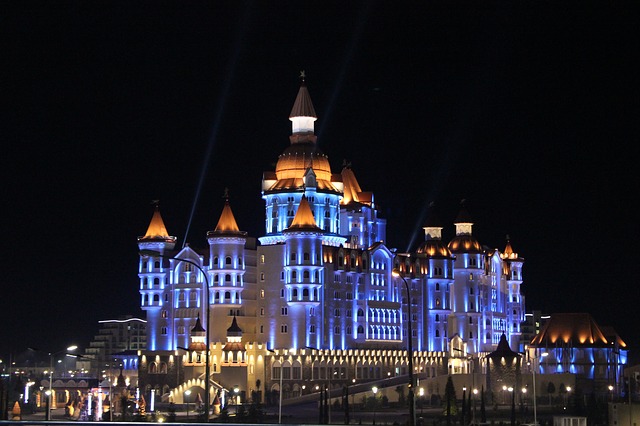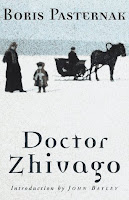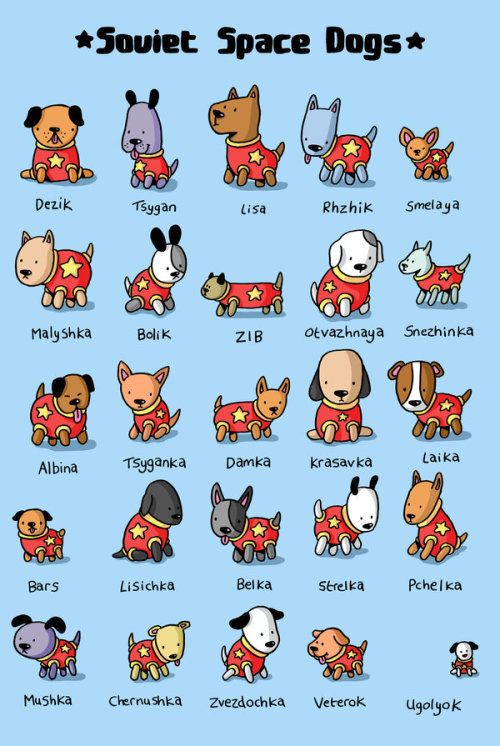In the spring of 2014, after Russia annexed the Crimea, the German chancellor Angela Merkel took to the air. She jetted some 20,000 kms around the globe, visiting nine cities in seven days – from Washington to Moscow, from Paris to Kiev – holding one meeting after another with key world leaders in the hope of brokering a peace-deal. Haunted by the centenary of 1914, Merkel saw summitry as the only way to stop Europe from ‘sleepwalking’ into another great war.
The post When to talk and when to walk appeared first on OUPblog.
Marked by widespread political and social change, twentieth-century Russia endured violent military conflicts, both domestic and international in scope, and as many iterations of government. The world’s first communist society, founded by Vladimir Lenin under the Bolshevik Party in 1917, Russia extended its influence through eastern Europe to become a global power.
The post From communist power to political collapse: twentieth-century Russia [timeline] appeared first on OUPblog.
If you don’t know that I am a huge feline fanatic, you haven’t been following me for long. I fell in love with Valeri’s art when I read and reviewed CATS ARE CATS last November. And I am seeking to … Continue reading →
 Dancer, Daughter, Traitor, Spy Elizabeth Kiem
Dancer, Daughter, Traitor, Spy Elizabeth Kiem
Marina may be a teen in the Soviet Union, but her mother is the country’s premier prima ballerina, so her family lives in privilege. Marina herself trains for the Bolshoi. Like her mother, she sometimes sees visions. These visions cause problems when, on the eve of Breshnev’s death, her mother sees something she shouldn’t--one of the USSR’s dark secrets about testing biological weapons* that gets her taken away.
Suddenly, it’s not safe anymore. Marina and her father must leave quickly, and end in Brighton Beach where her scientist father struggles to find a job and a way to rescue his wife. All Marina wants to do is dance, and her father is convinced this will help him make contact with the KGB so they can negotiate. Meanwhile, he gets tangled in with the Russian Mob as Marina tries to lead a normal life in a new country while fearing for her father’s safety and sanity.
I really liked this one and Marina’s father’s mental descent. You could see why he thought the things he thought, while still seeing how wrong they were. I liked how the romance was handled. Marina likes Ben, whose parents also escaped the USSR, but he has a girlfriend, Lindsay. Marina and Lindsay are also friends, and while it’s complicated, and slightly heartbreaking, it’s not overly dramatic and the way the characters handled it made me really like and respect them. Lindsay often didn’t know what she was talking about, especially when it came to the KGB and the Mob, but she was a really good friend and a great character.
I do think it needs an end note. Teens today don’t understand Soviet communism and the Cold War. (And trying to explain the terror of the Cold War to kids who’ve grown up in a world of terrorism and suicide bombers is really heart-breakingly hard.) Heck, when this came out a librarian only a few years younger than me was confused about what was so scary about that time. I also wanted to know if the testing episode that Marina’s mother knew about was real. It’s real in the book and seems more than plausible to me. A quick google doesn’t turn anything up, but was it based on other incidents?
I’m also not sure the paranormal psychic-vision thing was necessary. It was the lynch-pin as to why Marina’s mother was taken, and Marina’s visions added some moody foreshadowing, but there might have been another way for Marina’s mother to find out about the testing and made the book straight historical fiction, which would have made it stronger. 99% of the book is realistic historical fiction, and it’s tricky, because it’s a time period that many adults (read: parents and other gatekeepers) remember living through, but many readers (read: teens) don’t know much about, and the 1% that is paranormal makes the rest of the story easier to dismiss as “pure fiction.”
Overall though, I did really like it. It’s hard to go wrong with something that involves the KGB, the FBI, the Russian mob, and ballet. And, as someone who has very vivid memories of the end of the Cold War, I am loving all the YA fiction we’re seeing now about it. (Plus, not a book, and not for teens, but let’s just think for a minute how awesome The Americans is.)
Book Provided by... my local library
Links to Amazon are an affiliate link. You can help support Biblio File by purchasing any item (not just the one linked to!) through these links. Read my full disclosure statement.
By Michael Alexeev and Shlomo Weber
Much of the world watched the Winter Olympics in Sochi. While most people are primarily interested in the athletic achievements, the fact that the Games are taking place in Russia has also brought the Russian political system, economy, human rights, etc., into focus, inadvertently highlighting the interaction of the still pervasive Soviet legacy and the momentous changes since the collapse of the USSR.
Presumably the intended message of the Games is, as the Economist put it
, “Russia is back.” The question, however, is back to what? Is it back simply in terms of playing a major role on the international stage or also back to the Soviet ways of doing things such as creating Potemkin villages and making wasteful investments that foster corruption?
One of the major themes in the media coverage on the eve of the Games was the cost of construction. The commonly cited number of approximately $50 billion would make the Sochi Olympics the most expensive Games ever. According to the Washington Post, this number has appeared in almost 2000 news accounts last year, yet it almost certainly misrepresents the true cost of the Games. It is based on a year-old statement by Dmitry Kozak, a deputy prime minister in charge of preparation for the Games, and it includes both the state budget expenditures of about $23 billion and private investments by Olympic sponsors, although some of these sponsors appear to have been pressured by the government to invest.
Moreover, on closer inspection, some of the “private” investments have been actually made by state-owned or state-controlled corporations such as the Russian Railways and Gazprom. Much of the funds have been spent on improving general infrastructure and it is unclear what part of this investment would have been made in the absence of the Games. The Russian government argues that the investments in infrastructure and at least some of the Olympic facilities have turned Sochi into a much more attractive resort for Russian vacationers and would replace foreign resort destinations for the Russian middle class. At the same time, the number provided by Kozak a year ago probably underestimates the actual expenditures as such large projects typically exceed their projected costs.

Like most large investment projects in Russia, the Olympics probably involved a substantial amount of corruption and fraud which are in part responsible for the high price tag. A report co-authored by the former Deputy Prime Minister Boris Nemtsov, a long-time critic of President Vladimir Putin, claimed that “between $25bn and $30bn have been stolen” from the funds invested in the Olympics. While Russian officials strongly deny the presence of widespread fraud in the Olympic construction projects, Nemtsov’s numbers are roughly in line with the estimates from a survey conducted by Mark J. Levin and Georgy A. Satarov, which found that bribe revenue in Russia amounted to about 50% of GDP in 2005. Of course, “bribe revenue” could involve some double counting because lower level officials may share bribes with their higher-ups, but at the same time construction projects represent notoriously fertile soil for corruption.
Whatever one thinks of the reliability of the investment or, for that matter, corruption numbers cited above, it is clear that public and private investments engendered by the Games have been substantial. Let’s put the $50 billion number into perspective: this sum represents about 2.5% of the Russian 2013 GDP. While rating agency Fitch says that this amount is too small to produce a significant impact on the state budget, this percentage is close to one half of approximately 5.5% of GDP of the United States post-2008 recession stimulus under the American Recovery and Reinvestment Act of 2009.
This investment could help increase the size of the service sector, particularly tourism, in the Russian economy that continues to be highly dependent on oil and gas rents. While the diversification effect on the economy is likely to be relatively small, the impact on Krasnodar region that includes Sochi and the rest of the Russian Black Sea shoreline, as well as most of the Azov Sea shoreline, could be substantial. The new hotels could accommodate a three-fold increase in the number of tourists visiting the Sochi region. Perhaps the investment in residential housing and infrastructure could even facilitate, at least on the margin, relocation of some of the Russian population from the Northern parts of the country — a relocation that is needed but has not been proceeding at sufficiently fast pace.
Initially, the prospect of the Games hinted at a macroeconomic stimulus for Russia. Indeed, the Krasnodar region has been growing at roughly twice the rate of the rest of the economy since the Games were awarded to Russia in 2007. But the stimulating effect on the overall economy is hard to discern. Russia’s economic growth slowed down considerably in 2013, as was predicted by Revold Entov and Oleg Lugovoy, and in the last half of the year, the growth stalled almost completely, despite some recovery in much of the world. Moreover, the seasonally adjusted January index of manufacturing activity in Russia released on February 17 dropped to 48.0 — the lowest level since the 2009 crisis and almost a full point lower than an already weak level of December 2013.
As with most large projects, the effects of the Olympic Games on the Russian economy appear to be ambiguous and demonstrate both the new-found economic prowess of the country and the old ills of corruption and inefficiencies of the state involvement in the economy. Perhaps the best thing to do is to leave the more detailed analysis of these issues to some future date and for now simply enjoy the recent memories of Olympic competition and pageantry.
Michael Alexeev and Shlomo Weber are the co-editors of The Oxford Handbook of the Russian Economy. Michael Alexeev is a Professor of Economics at Indiana University in Bloomington. Shlomo Weber is the Robert H. and Nancy Dedman Trustee Professor of Economics at Southern Methodist University, Dallas, and PINE Foundation Professor of Economics at the New Economic School of Moscow.
Subscribe to the OUPblog via email or RSS.
Subscribe to only business and economics articles on the OUPblog via email or RSS.
Image credit: “Sochi Olympic Park Architecture” by Alex1983. Public domain via pixabay.
The post Did Russia really spend ‘$50 billion’ on the Sochi Olympics? appeared first on OUPblog.


 Breaking Stalin's Nose Eugene Yelchin
Breaking Stalin's Nose Eugene Yelchin
I hadn't read this one yet when it won a Newbery Honor last week, but I *did* have it already checked out from the library. WIN!
Sasha is going to be inducted into the Young Pioneers tomorrow, and his hero, his father, who works for State Security will be there performing the ceremony. But in the middle of the night, his father is arrested and the neighbors claim their room. At school the next day, starting with a snowball fight gone wrong, everything unravels and Sasha starts to see the truth about Stalin, the system, and the country he loves so much.
It took me awhile to get into Sasha's voice. He buys the communist line completely and sometimes his spouting of Communist rhetoric can seem like clumsy insertion of background info, but it's not. From what I know about living under a communist dictatorship with a strong cult of personality, that's exactly how a kid who was taught to believe in the system would talk. Plus, when Yelchin is actually adding in background information, it's not clumsy. It works really well
Recently, my dad caught a gang of wreckers scheming to blow it up. Wreckers are enemies of the people who want to destroy our precious Soviet property. I can't imagine anybody who would dare to damage a monument to Comrade Stalin, but there are some bad characters out there. Obviously, they're always caught.
I think that Yelchin's black-and-white graphite drawings really add the text and the story. I especially liked the way he plays with perspective and proportion to really give a Sasha-eye view of what's going on.
As things unravel at school, Yelchin ratchets up the tension and suspense, but this is still a solidly middle grade novel.
I do wish I would have read this before it won, so then I wouldn't have read it with my 'Is this Newbery worthy?' lens. Because with that lens on, I'm questioning "would he have become disillusioned so quickly? would he really have done X?" (X is a spoiler, so I won't tell you.) And I don't think those questions would have plagued me before Monday.
BUT! All doubts aside, it is a GREAT book. I think Yelchin does a FANTASTIC job of painting a society in its ideal and its horror in a way that's understandable and gripping for younger readers without diminishing the scope or facts. After I got into his voice, I loved Sasha. I loved seeing the world through his eyes, even as that world shattered. My heart broke for him.
Also, I LOVED the ending. It's a great ending without being too neat and tidy. Yelchin also has a great author's note.
Book Provided by... my local library
Links to Amazon are an affiliate link. You can help support Biblio File by purchasing any item (not just the one linked to!) through these links. Read my full disclosure statement.
 Here is a very interesting story of how the CIA (US) arranged for Boris Pasternak's Dr. Zhivago to be copied after forcing a plane carrying a copy of it to land. The plane was held for two hours while the CIA photographed each page. While this reads like something out of a James Bond novel, it highlights how the CIA went out of its way to try to embarrass the Kremlin. The novel was then submitted for consideration for the 1958 Nobel Prize in Literature which it went on to win.
Here is a very interesting story of how the CIA (US) arranged for Boris Pasternak's Dr. Zhivago to be copied after forcing a plane carrying a copy of it to land. The plane was held for two hours while the CIA photographed each page. While this reads like something out of a James Bond novel, it highlights how the CIA went out of its way to try to embarrass the Kremlin. The novel was then submitted for consideration for the 1958 Nobel Prize in Literature which it went on to win.
Was it worthy of a prize? Only the reader knows for sure.
Unfortunately, the author had to decline the award.
According to a news story from 2004, the entire works of Pasternak were to be published in his home country for the first time, after being banned for over 30 years.







